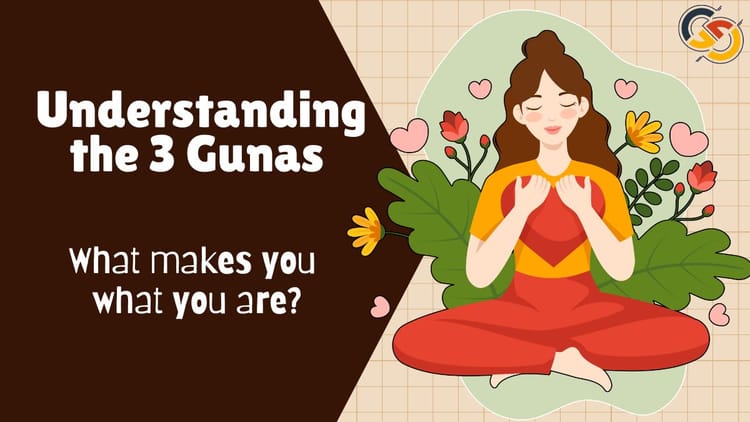One Thought Away from Happiness: A Science-Backed Guide to Mental Well-being

In our fast-paced modern world, pursuing happiness has become more complex. According to the 2024 World Happiness Report by Gallup, global happiness levels have declined significantly, with concerning trends in mental well-being across developed nations. Yet, groundbreaking research in positive psychology suggests that happiness might be more accessible than we think—sometimes, it's just one thought away.
The Science Behind "One Thought Away"
The concept that we're "one thought away from happiness" isn't just a feel-good phrase – it's backed by substantial neuroscientific research. Studies from the Harvard Center for Brain Science demonstrate that our thoughts can reshape our brain structure through neuroplasticity. When we consciously shift our thought patterns, we create new neural pathways that can lead to lasting positive changes in our mental state.
Key Research Findings:
- A 2023 study in the Journal of Clinical Psychology found that individuals who practiced cognitive reframing showed a 43% improvement in self-reported happiness levels over eight weeks
- Research from UCLA's Mindfulness Awareness Research Center indicates that regular mindfulness practice can reduce anxiety by up to 58% and increase positive emotions by 36%
- The American Psychological Association reports that people with a growth mindset are 31% more likely to achieve their goals and maintain higher levels of life satisfaction
Seven Evidence-Based Strategies for Lasting Happiness
1. Master Mindfulness
Mindfulness isn't just a buzzword – it's a scientifically validated path to well-being. Recent studies from Johns Hopkins University show that mindfulness meditation can be as effective as antidepressants for treating certain forms of depression.
Practical Implementation:
- Start with 5-minute daily meditation sessions
- Practice mindful eating during one meal per day
- Incorporate body scan techniques before sleep
- Use mindfulness apps (research shows app-guided meditation can increase mindfulness by 27%)
2. Rewire Negative Thought Patterns
Cognitive Behavioral Therapy (CBT) techniques have successfully transformed negative thinking patterns. A 2023 meta-analysis found that CBT can reduce negative thinking by up to 63% when practiced consistently.
Key Techniques:
- Use the ABCD method (Adversity, Beliefs, Consequences, Dispute)
- Practice thought journaling
- Challenge cognitive distortions
- Implement the "3-3-3 rule" (name 3 things you see, 3 things you hear, 3 parts of your body)
3. Cultivate Active Gratitude
Research from UC Berkeley's Greater Good Science Center reveals that practicing gratitude can increase happiness by up to 25% and reduce depression by 32%.
Daily Practices:
- Maintain a structured gratitude journal
- Practice gratitude meditation
- Write monthly gratitude letters
- Share three daily gratitudes with a partner or friend
4. Optimize Physical Well-being
The mind-body connection is powerful. Regular exercise is as effective as medication for treating mild to moderate depression in many cases.
Evidence-Based Recommendations:
- 150 minutes of moderate aerobic activity per week
- Two strength-training sessions weekly
- Regular exposure to natural light
- 7-9 hours of quality sleep nightly
5. Strengthen Social Connections
Harvard's 80-year study on adult development reveals that strong relationships best predict long-term happiness and longevity.
Connection Strategies:
- Schedule regular check-ins with loved ones
- Join community groups or clubs
- Practice active listening techniques
- Engage in shared activities or hobbies
6. Practice Strategic Kindness
Research from Oxford University shows that performing acts of kindness can increase happiness and life satisfaction by up to 42%.
Implementation Ideas:
- Set weekly kindness goals
- Volunteer regularly (aim for 2-4 hours monthly)
- Practice random acts of kindness
- Support causes aligned with your values
7. Set and Pursue Meaningful Goals
Studies show that people who set and actively pursue goals are 19% more likely to feel satisfied with their lives.
Goal-Setting Framework:
- Use the SMART criteria
- Break large goals into micro-objectives
- Create accountability systems
- Celebrate small wins
Understanding Cognitive Biases
To truly master happiness, it's essential to understand and overcome common cognitive biases that can sabotage our well-being:
- Negativity Bias: Our tendency to give more weight to negative experiences
- Confirmation Bias: Seeking information that confirms our existing beliefs
- Comparison Bias: The tendency to compare ourselves unfavorably to others
- Future-Focus Bias: Overestimating the impact of future events on our happiness
Sunk Cost Fallacy
Anchoring Bias
Confirmation Bias
Fundamental Attribution Error
Endowment Effect
The Balance Perspective
While pursuing happiness is important, it's crucial to maintain a balanced approach. Research shows that accepting and processing negative emotions is essential for long-term well-being. The goal isn't to eliminate negative thoughts but to develop a healthy relationship with all our emotions.
Moving Forward
Remember that happiness isn't a destination but a journey. The latest research in positive psychology suggests that sustainable happiness comes from a combination of the following:
- Purposeful activity (40%)
- Genetic setpoint (50%)
- Life circumstances (10%)
This means we have significant control over our happiness levels through our daily choices and thought patterns.
Conclusion
The concept of being "one thought away from happiness" isn't about toxic positivity or denying real challenges. Instead, it's about understanding the scientific reality that our thoughts shape our experience, and with practiced awareness and intentional action, we can cultivate more joy and satisfaction in our lives.
Remember: happiness isn't about always being positive—it's about having the tools and mindset to navigate life's ups and downs with resilience and grace.



